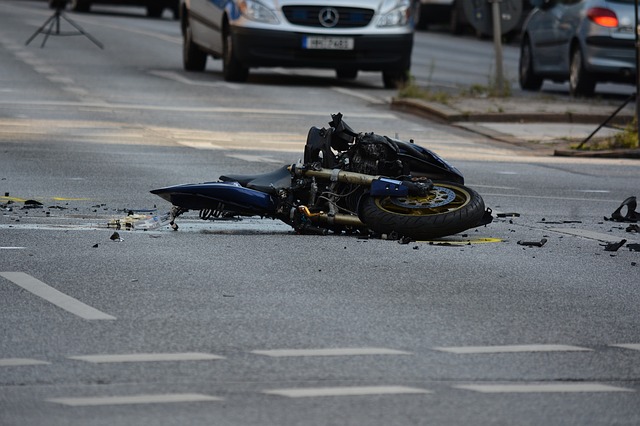
If you were in a motorcycle accident that was not your fault, proving negligence is far more complex than you may realize. Negligence is the absence of appropriate or standard diligence. Standard and expected diligence is acting with care to prevent harming others, also called “duty of care”. Every citizen has the duty to act with caution concerning others.
Any situation where a driver did not uphold their duty of care constitutes negligence. But establishing and proving negligence after a motorcycle accident in Las Vegas is more complex.
Proving Negligence in a Motorcycle Accident
In Nevada, motorcycle accidents seem to be on the rise. In Las Vegas, a consistently crowded city with a lively night life, situations prone to accidents can be frequent.
Proving negligence in a motorcycle accident is more complex than it sounds, and you need sufficient evidence and appropriate claims to make your case. To prove negligence, you must establish one or more of the following elements:
The Defendant Owed You a Duty of Care
The first element is to prove there was a duty of care. When you drive around town, you owe everyone a duty of care. In return, everyone else driving also owes you the same duty of care. This element is usually the easiest to prove.
The Duty of Care Was Breached by the Defendant
Next, you need to establish that the defendant ignored or violated this duty of care. The idea is that a reasonable and ordinary person in the same situation as the defendant would have acted with more care and diligence.
This element can be more complex, especially if the accident was particularly chaotic and not straightforward.
For example, if the defendant tried to avoid a child running into the street and struck you as a result, you may not be able to establish the breach, as most people would also swerve in this situation.
Your Injuries Are a Result of the Breach
Once you successfully establish an expected duty of care and a subsequent breach by the defendant, you need to prove your injuries were a result of this negligent behavior.
Injuries may be visible, like a broken bone, or wound, or an injury that can be shown on medical tests, like a concussion. But other injuries may be harder to prove, such as physical pain, suffering, anguish, fear, memory loss, or PTSD.
Proving the existence and severity of these injuries is complex, but you also have to establish the connection and causation of the injuries and the defendant’s behavior.
You Suffered Damages Due to the Breach
If you suffered damages aside from injuries because of the accident, these damages can help you establish negligence and receive appropriate compensation.
Damages are different from injuries but are often associated, such as the cost of treatment for injuries. It can also include repairs or replacement costs for your vehicle or other property.
Damages you faced because of the accident can include:
- Doctor bills
- Hospital bills
- Prescription medication cost
- Physical therapy vost
- Lost wages
- Lowered earning capacity
- Property damage
- Pain and suffering (emotional or physical)
How To Make Establishing Negligence Easier
To make it easier to establish negligence following a motorcycle accident, you should perform the following actions:
- Immediately report the accident to the police (preferably at the scene)
- Exchange names, contact information, and insurance information with anyone involved in the accident, including witnesses if possible
- Track and document all relevant medical bills, lost wages, receipts, and other evidence of damages
- Visit a doctor as soon as possible after the crash and adhere to all treatment instructions or recommendations
- Document details of the accident and record how you’ve been feeling following the accident (pain, discomfort, stress, trauma, etc.)
- Contact a motorcycle accident lawyer soon after the accident
Final Word
When trying to prove negligence in a motorcycle accident, the more evidence, witnesses, and documentation you have, the better off you will be.
Keep every medical bill, witness phone number, photographs of your injuries and property, and anything else that could be useful. And call a lawyer as soon as possible!





